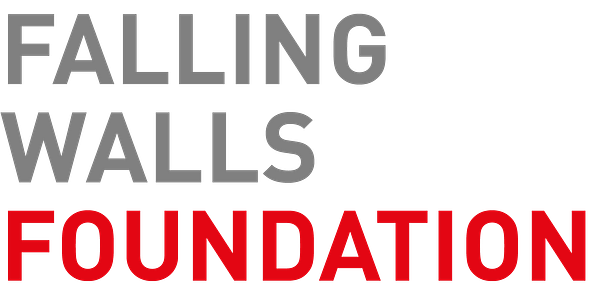Press release -
Falling Walls Foundation, Elsevier Foundation And Volkswagen Foundation Appoint Three Winners Of The Women’s Impact Award
• Non-profit organisations Falling Walls Foundation, Elsevier Foundation and Volkswagen Foundation have selected three Winners of the Women’s Impact Award out of 10 Finalists.
• According to a distinguished jury, the three chosen projects show outstanding promise in advancing gender equity and creating meaningful societal impact for women and girls.
• The three Winners are invited to present their projects to an international audience during the Female Science Talents International Fall Gathering and the Falling Walls Award Ceremony.
• One Winner will also be appointed as Science Breakthrough of the Year.
Berlin, Germany, 31 July 2025. The Falling Walls Foundation and its partners Elsevier Foundation and Volkswagen Foundation are proud to announce the three Winners of this year’s Women’s Impact Award. According to a distinguished jury, the three chosen projects show outstanding promise in advancing gender equality. The Falling Walls Foundation lauds the efforts of all the initial 97 applications from 38 countries and extends its appreciation to all ten recently announced Finalists. The three Winners are invited to present their projects to an international audience during the Female Science Talents International Fall Gathering and the Falling Walls Award Ceremony. One of the Winners will be honoured with the title Science Breakthrough of the Year 2025 and will present her work on the grand Falling Walls stage on 9 November, reaching a global audience.
The Women’s Impact Award, presented jointly with the Elsevier Foundation and the Volkswagen Foundation, recognises outstanding projects that advance gender equity and generate meaningful societal impact for women and girls. This year, an esteemed international jury has selected three exceptional Winners whose work exemplifies these values.
This year’s winning projects address gender equality and societal impact from diverse perspectives: from innovative breast cancer diagnostics and research on the effects of reproductive cycling on ageing and disease, to highlighting the often-overlooked role of women in global fisheries.
1. Ângela Gonçalves
Project: How the biological clock ticks in the female reproductive tract
Addressing decades of disparities in women’s health, this project leverages AI and biology to transform diagnostics, aging and cancer prevention.
Angela Goncalves originally trained in Computer Science at the University of Coimbra in Portugal, focusing on biologically inspired AI algorithms. After a fellowship at the European Space Agency and a PhD from Cambridge in Computational Molecular Biology, she led groundbreaking research in gene regulation and cancer detection. Now a full professor at Heidelberg University and group leader at DKFZ, she is developing new models for early cancer detection and healthy aging, with a special focus on women’s health.
Press Contact:
presse@dkfz.de
2. Colette Wabnitz
Project: Gender equity in fisheries
This project highlights women in global fisheries; co-creating fact sheets, policy analyses and workshops to advance gender equity and ocean justice.
Dr. Wabnitz is an interdisciplinary marine scientist working across Stanford University, UBC and the Stockholm Resilience Centre. Her work focuses on social-ecological resilience in the Global South. She collaborates with local communities, governments and organizations to co-develop practical, inclusive policy tools to make fisheries and food systems more equitable and sustainable.
Press Contacts:
Katie Jewett, Stanford Center for Ocean Solutions – kjewett@stanford.edu
Katherine Came, UBC – k.came@oceans.ubc.ca
Marcus Lundstedt, Stockholm Resilience Centre – marcus.lundstedt@su.se
3. Omneya Attallah
Project: BrAID: Early detection of breast cancer in resource-limited settings
This project develops BrAID, an AI-powered non-invasive test to detect breast cancer early, bringing accessible diagnosis to underserved communities.
Prof. Omneya Attallah leads AI innovation in healthcare at AASTMT, Egypt. A top-ranked scientist globally (Stanford/Elsevier and ScholarGPS), she develops medical diagnostic tools and assistive technologies. She is editor-in-chief of the Journal of Computational Intelligence in Biomedicine, a senior IEEE member and an influential figure in global AI-driven bioinformatics.
Press Contact:
o.attallah@aast.edu
The Falling Walls Foundation is looking forward to welcoming the three Winners live on stage in Berlin.
Topics
Categories
About the Falling Walls Science Summit
Since its inception in 2009, the Falling Walls Science Summit has become a premier international forum for scientific breakthroughs and interdisciplinary dialogue. Held annually in Berlin from 6–9 November, the Science Summit commemorates the fall of the Berlin Wall by bringing together global leaders to explore how science can shape a sustainable future.
With its key formats—Falling Walls Pitches, Falling Walls Circle, and Falling Walls Science Breakthroughs—the Summit fosters collaboration among academia, industry, politics and civil society to drive transformative change. The event is organized by the non-profit Falling Walls Foundation. More information: falling-walls.com.
About the Falling Walls Foundation
The Falling Walls Foundation gGmbH is a Berlin-based non-profit organization dedicated to advancing science communication and public engagement with research. Its initiatives bring together international experts to develop breakthrough solutions for global challenges.
Alongside the Falling Walls Science Summit, the Foundation runs the Berlin Science Week, as well as specialized programmes such as Falling Walls Lab, Falling Walls Engage, Falling Walls Venture and Female Science Talents. Since 2020, the Foundation has also organized the Creative Bureaucracy Festival, an international platform for public sector innovation.
The Foundation is supported by the German Federal Ministry of Research, Technology and Space, the Berlin Senate, the Hannover Re Foundation, the Museum for Natural History, Berlin, PD – Public Sector Advisory, Volkswagen Foundation and more than 100 additional international philanthropies, academic institutions, companies and NGOs. Learn more: https://falling-walls.com/foundation.

